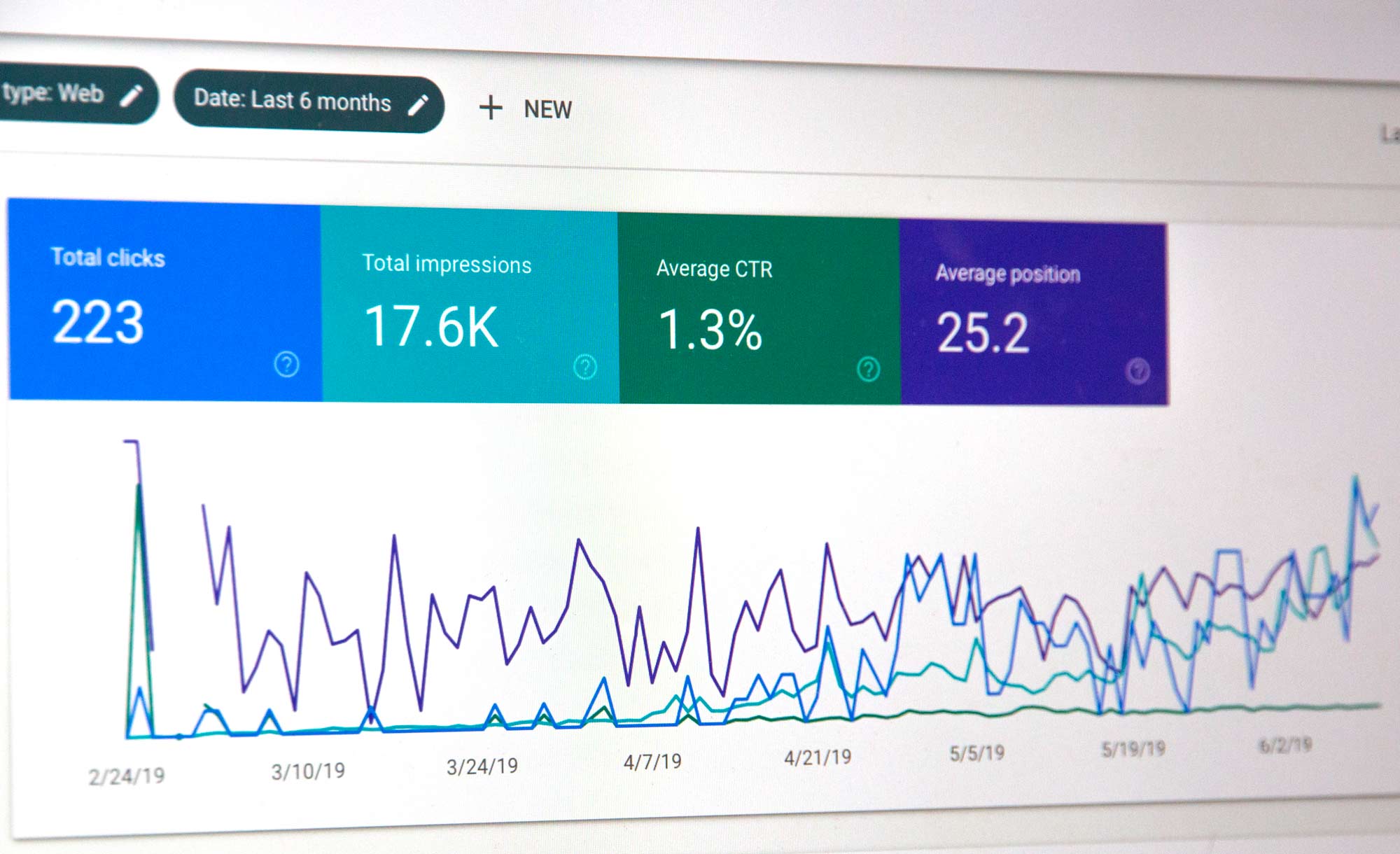5 SEO Improvements for Your Restaurant
September 3, 2019
Jeremy Wells
What Is SEO?
Search engine optimization is a key component to any restaurant marketing effort aimed at helping your restaurant improve, expand, and evolve in today’s technology-driven world. SEO, which stands for search engine optimization, is the acronym for increasing the amount and quality of traffic to your business’ website through search engines like Google. SEO is a way for business owners to attract a specific demographic that is genuinely interested in your restaurant, instead of random internet users clicking your ad.
Why Is SEO Important for Your Restaurant?
SEO is a crucial part in growing your business because it is the key to getting a larger amount of traffic to your business site, in turn, bringing you more paying customers, and could mean never paying for regular advertisements again. Investing in search engine optimization will enable you to use locality, customer sentiment, as well as structured data to maximize your business growth. No matter how low your performance on search engines has been in the past, you have the opportunity to boost your popularity on search engines and other websites as much as you want through SEO.
In order to get the most benefits out of search engine optimization; one must understand how it works. Search engines like Google and Bing have something called a “crawler” that gathers information all around the internet about different content and brings that data back to the search engines. The engines then use this data through an algorithm to match up with certain searches, bringing more users to your website.
Search engine optimization may sound complicated, but it gets easier to understand over time. The results will speak for themselves. By following a few guidelines, you can help your business thrive through SEO.
1. Designing Your Website & Managing Content
One of the most important factors in today’s online world is a solid, well designed, maintained website that will catch eyes, and quality content and information to captivate and inform readers. First and foremost, if you have the budget, hire a reputable web design and development agency to get your website updated, accessible, and aesthetically pleasing to help your site give off a professional impression. If you don’t think you can afford to hire a professional, there are many online resources that you can use to help you create your own website design and outline from scratch for free or at a low cost, such as Squarespace.
Secondly, take the time to seek out a qualified individual to do content writing for your website, for things like FAQs, menus, a section about the restaurant and its story, and any other important information you want them to include that will captivate and inform customers visiting your site. After all, if you’re going to be investing in generating more traffic to your website, you should want the content to resonate with your visitors.
This will require a budget as well, since content creators’ time is very valuable. Be sure they are fluent in your language, have proficient writing and editing skills, and can come up with fresh, inviting writing to present on your website.
2. Sort Out Your Content Preferences & Strategize
In order to increase traffic to your restaurant’s website, you will have to pinpoint the location the majority of your customers will come from based on popular work locations or common tourist attractions. Doing this will enable you to narrow your audience and ensure the people visiting your site will actually have a genuine interest in it and won’t just click off immediately without giving it a read. You can use resources like Google Keyword Planner to plug in a specific geographic focus area.
After you’ve sorted out the ideal demographic based on your location, you will want to select which specific words or phrases are common among your target audience. You can pinpoint generic terms, such as “restaurant,” or pair them with a specific location, such as “New York City restaurants.” These would be considered “high-level restaurant terms,” simply meaning these are among the most common searches people may use on a search engine.
Aside from these high-level terms are “niche-specific terms,” which are more specific searches, but still broad in nature. These can include certain foods or atmospheres, such as “Chinese restaurants” or “family restaurants.” To get a good idea of examples you can use to get more clicks, you can use resources like Yelp and TripAdvisor and take a look at their search filters to get an idea of different categories people search for on those platforms.
“Brand terms” are simply terms used for your specific brand, like your restaurant’s full name. These are terms you can begin to use once your business is well established and popular in the area. Be sure not to focus solely on these terms, and include more broad, general search terms to be sure your business gains traction and outranks other recommended restaurants on search engines.
3. Be Active and Present on Social Media
Social media is inarguably a massive part of business development and maintaining a customer base, Facebook is one of the most popular platforms for restaurants to interact with customers and keep them in the loop. One way to utilize social media for your business is to offer rewards or discounts for customers sharing posts from your restaurant’s page. This will help spread the word about your establishment while keeping customers engaged and excited about your business, especially if they get something out of it!
Regular posts and updates about your business will also keep customers in the loop while keeping your business relevant. The more they see from you, the more likely they are to pay your restaurant a visit. Be sure to announce any new menu items or merchandise, as well as any special events or discounts happening on your social platforms to inform your fans, and hopefully they will share and spread the word to others on the platform as well.
4. Encourage Feedback
The best way to keep your restaurant at the top of its game, as well as search results, is by having an extensive collection of positive reviews, ratings, and testimonials from customers. By having high-star reviews, users are more likely to click on your restaurant when looking at it against others. The more positive reviews you have, the better your customers will perceive your business, making them much more likely to spend money there.
Consider a rewards program or free coupon for customers leaving reviews on platforms like Google, Yelp, TripAdvisor, and more. This will be appealing to them as they will feel their opinion matters and will be heard. Not only this, but they will benefit from sharing their thoughts, and will be more likely to return to your establishment to do more business in the future.
5. Get Technological
Almost two-thirds of website traffic comes from mobile phones or tablets, according to Google Analytics. To use this to your business’ advantage, invest in making your website mobile device friendly, to ensure customers can access it from anywhere. This will eliminate frustrating buffering and wasted time, which could result in negative reviews from customers.
One step further would be investing in a mobile app for your business. This may be costly, but it gives customers an opportunity to browse menus, place online pickup orders, even be involved in a customer rewards program, should you choose to create one for your restaurant. This will help give customers a streamlined, positive experience with your business, just from using a convenient mobile app.
6. Whatever you do – Monitor What’s Going On
Any change you make can either harm or help your business, so you need to be aware of how the decisions you make are affecting your business. Begin by equipping your website with Google Analytics, which will help you keep track of your site traffic and give you an idea of how many people are being reached. You can also use tools like Unamo SEO, which will analyze your site, help you improve in certain areas, and will show you your site’s progress on a daily basis.
To go one step further, you can hire a content manager to analyze all this data. They can set up all these tools and platforms to keep track of your website’s progress and traffic and can make different adjustments as needed to make sure you’re getting the results you want. This will be another thing to factor into your budget, but if you aren’t a tech-savvy business owner, this may be a better option than trying to do it all yourself.
Conclusion
Search engine optimization may seem very complicated and hard to understand, but it is simpler than many may think. It is a key component to business expansion and can work wonders when it comes to getting your business the exposure it needs to reach its’ potential. By being active on social media, forming a good relationship with customers, and hiring help when you need it, you can easily take your business to the next level. Be sure to keep up with the times, keep your website up to date and mobile device friendly. Keep your business on the up and up by utilizing these SEO tips.
Jeremy Wells
Partner at Longitude°
Jeremy is the author of Future Hospitality and Brand Strategist at Longitude°. As a member of the Education Committee for The Boutique & Lifestyle Leaders Association (BLLA) and a content contributor to Cornell University’s Hospitality Vision and Concept Design graduate program, he is a committed thought leader in hotel branding, concepting, and experience strategy.






